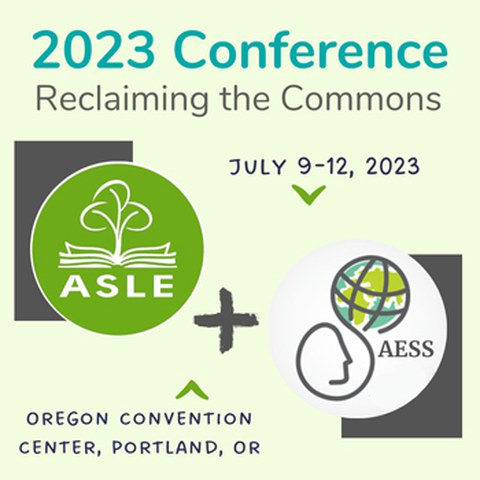11.07.2023
Critical Worldbuilding: Reflections on Solar Education | Lecture at Teaching Energy Humanities Panel | ASLE/AESS 2023 | Moritz Ingwersen
Critical Worldbuilding: Reflections on Solar Education
Lecture by Moritz Ingwersen for Teaching Energy Humanities Panel at Association for Literature and Environment (ASLE) conference 2023
July 09-12, 2023
Portland, Oregon
Roundtable: Teaching Energy Humanities, curated by Debby Rosenthal and Jason Molesky
We propose a roundtable discussion with six panelists who will talk about their classroom strategies for teaching energy humanities. Energy humanities, a swiftly growing subfield of the environmental humanities, works to reveal—and, perhaps, to remake—the interrelationships between cultural practices and energy systems. How a society uses, produces, and distributes energy reflects, as well as shapes, its foundational structures and values. Questions of energy are always already questions of ethics, identity, narrative, and community—in short, questions of culture that invite broad, interdisciplinary humanistic inquiry.
Properly understood, then, scholarship and teaching about energy are not the purviews solely of scientists and public policy experts, but also of literary theorists, art historians, musicologists, actors, philosophers, poets, and architects. Those working in such areas are well-equipped to situate our current energy regime in terms of its overdetermined social and historical bases in, for example, colonialism, racial capitalism, and global class struggles. Yet energy humanities looks beyond concerns of climate change to consider, among other issues, the textual and cultural relations bound up with inputs like wood, whale oil, or the laboring muscles of human and nonhuman beings; the gendered politics of energy systems; the conflicts around historical energy transitions; or the artistic tensions and possibilities fostered by energy shifts such as the rise of steam power, mass electrification, or automobility.
Our panelists will discuss practical strategies to incorporate themes of energy and extraction into humanities courses, whether the courses are in person, online, or hybrid. Speakers will reflect on teaching energy humanities with literary texts, either as a unit in a course or as a standalone course, to demonstrate that literature can imbue energy studies with narrative purpose. Some speakers will talk about using creative writing assignments, film, TV, and other media relating to energy issues in the classroom. Others will discuss using energy humanities to design interdisciplinary, collaborative, or team-teaching projects that ask how the energy humanities have contributed to discourses surrounding the Anthropocene, climate change, carbon culture, the sustainability of resources, and/or environmental degradation
Another panelist will discuss assignments that push students to recognize the effects of our extraction economy on both bodies and the earth, and particularly on historically marginalized and vulnerable peoples and regions. All presenters will think about how the humanities have contributed to discussions about economic ideologies embedded in our energy-extraction culture, and how the humanities help us reimagine our energy-intensive high-emissions lifestyles.
Chairs: Debra J. Rosenthal and Jason Molesky
- Umme Al-wazedi, “(Neo-)Imperial Politics and Petrofiction: Teaching Helon Habila’s Oil on Water,” Augustana College
- Adam Carlson, “Teaching Energy Humanities in Oil Country: An Affective, Extractive Ethnography,” University of Alberta
- Megan Cole, “Fossil-Fueled Fictions: Teaching Energy in US Literature Surveys and Critical Reading Courses” UC Irvine
- Amy Elias, "What to say about Batteries? Bringing Humanities to Team Teaching with Engineering and Communications". University of Tennessee
- Moritz Ingwersen, “Critical Worldbuilding: Reflections on Solar Education,” TU Dresden
- Delice Williams, “Oil & Water: A Case for Mixing Elements in Teaching About Energy” Univ of Delaware.

